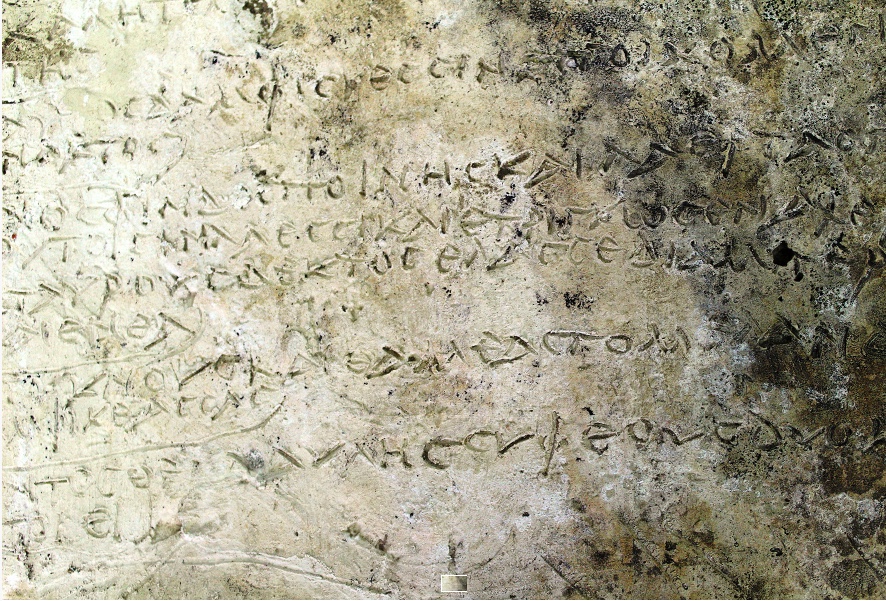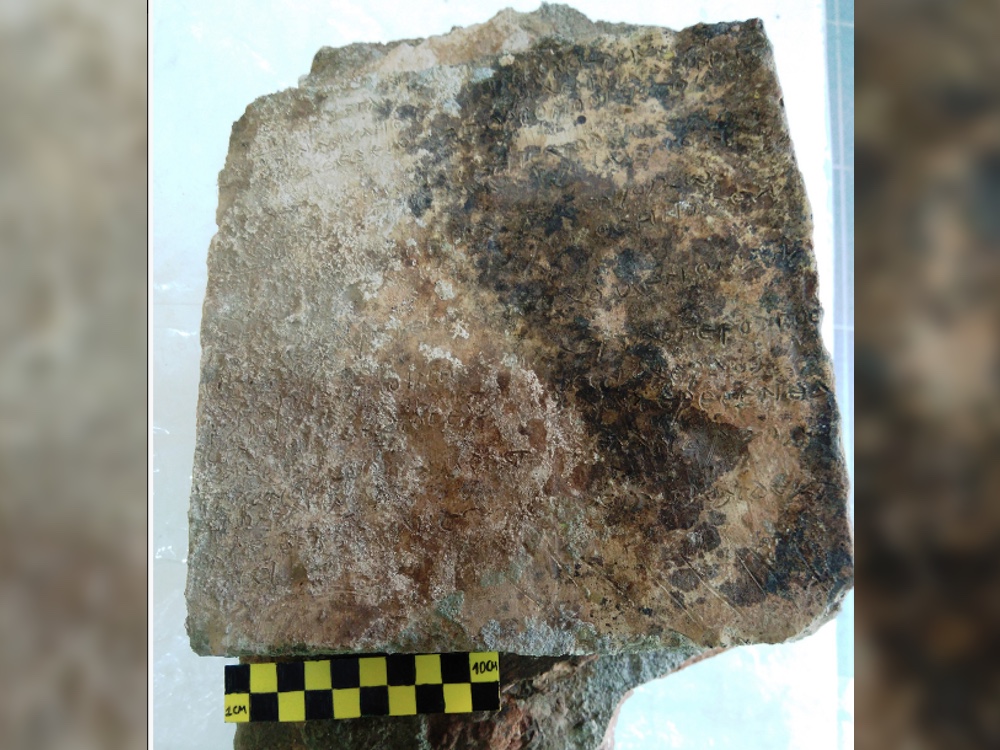Possible Oldest Fragment of Homer's 'Odyssey' Discovered in Greece

In an ancient heap of Roman rubble, archaeologists in Greece discovered a clay tablet that may contain one of the oldest known written fragments of Homer's "Odyssey."
The Greek Ministry of Culture announced on July 10 that a terra-cotta slab scrawled with 13 lines of the epic poem had been unearthed by archaeologists in Olympia, home to one of the most important religious sanctuaries of ancient Greece, and the site of the original Olympics.
From 2015 to 2017, the Greek Ministry of Culture and several German researchers had been conducting a survey and geo-archaeological research project to investigate the area surrounding the religious temples and buildings that make up the Sanctuary of Olympia.
The terra-cotta slab was found in a pile of tiles and bricks, stones and other remains of the Roman period, not far from the Sanctuary of Olympia, said Erophili Kollia, an archaeologist with the Greek Ministry of Culture and the director of the project. Scholars are still working on an interpretation of the slab and its purpose, though they believe it was created before the third century A.D. [The 25 Most Mysterious Archaeological Finds on Earth]
"The slab cannot be directly connected with the sanctuary, at least for the time being, as it was not found within its limits," Kollia told Live Science in an email. "Moreover, there is no parallel of a similar offering from the Olympia sanctuary."
The inscription contains the first 13 verses of the 14th rhapsody, or book, of "The Odyssey,"and it represents the oldest known text with the verses 1 to 8, Kollia said. The newly discovered text has some slight differences from later versions, Kollia said, "but we cannot refer to them in detail, as the study of the inscription is in progress."
In the 14th book of "The Odyssey," Odysseus has reached his home, Ithaca, after a 10-year journey following his participation in the Trojan War, and he addresses his loyal servant Eumaeus, who doesn't recognize him.
Get the world’s most fascinating discoveries delivered straight to your inbox.
One of the oldest existing works of Western literature, "The Odyssey" was believed to have been composed by Homer in the eighth century B.C. The epic poem was relayed through oral tradition until its 12,000 lines were written down.
Original article on Live Science.

 Live Science Plus
Live Science Plus






